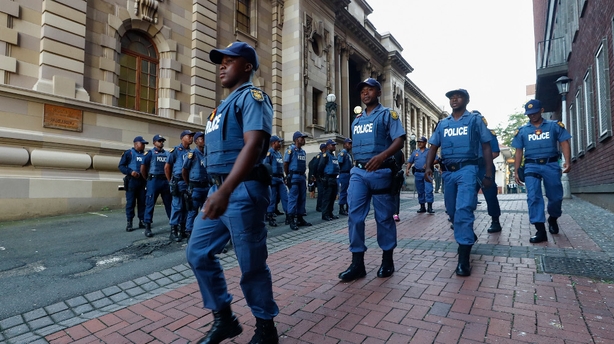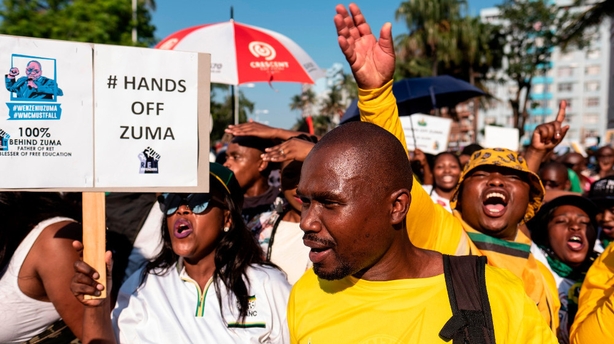The Durban High Court adjourned until 8 June a case in which former South African president Jacob Zuma is accused of corruption in a $2.5billion arms deal, Judge Themba Sishi said.
Mr Zuma's legal team and lawyers for the state agreed to the postponement to give both sides time to prepare their submissions relating to charges against Mr Zuma including fraud, racketeering and money laundering.
The 75-year-old, whose scandal-plagued nine years in office were marked by economic stagnation and credit downgrades, faces 16 charges including fraud, racketeering and money laundering.
Mr Zuma denies any wrongdoing and is challenging the decision to prosecute the case, a dramatic development on a continent where political leaders are rarely held to account for their actions before the law.
Mr Zuma waved to crowds of supporters and reporters as he mounted the steps of the High Court.
The speed with which prosecutors booked his day in court is a sign of the loss of control Mr Zuma has suffered since his successor, Cyril Ramaphosa, became head of the ruling African National Congress (ANC) in December.
However, Mr Zuma still retains some popular support, especially in his home province of KwaZulu-Natal, where the case is being heard.


Heavily armed police in riot gear lined the square outside the court, as thousands of Mr Zuma supporters gathered to express solidarity with a leader they say is the victim of a politically motivated witch hunt.
Mr Zuma, who was forced to resign by the ANC last month, was at the centre of a 1990s deal to buy billions of dollars of European military hardware to upgrade South Africa's post-apartheid armed forces.
But the deal was mired in scandal and controversy from the start, with many inside and outside the ANC questioning the spending given the massive social issues, from health to education, Nelson Mandela's party had to address after coming to power in 1994.
The fallout has cast a shadow over South African politics ever since.
Mr Zuma was deputy president at the time. Schabir Shaikh, his former financial adviser, was found guilty and jailed in 2005 for trying to solicit bribes for Mr Zuma from a subsidiary of French arms company Thales.
The company is facing charges in the same case.
Charges against Mr Zuma were filed but then set aside by the National Prosecuting Authority shortly before he successfully ran for president in 2009. The charges were re-instated in 2016.
Since his election nine years ago, his opponents have fought a lengthy legal battle to have the charges reinstated.
Mr Zuma countered with his own legal challenges.

